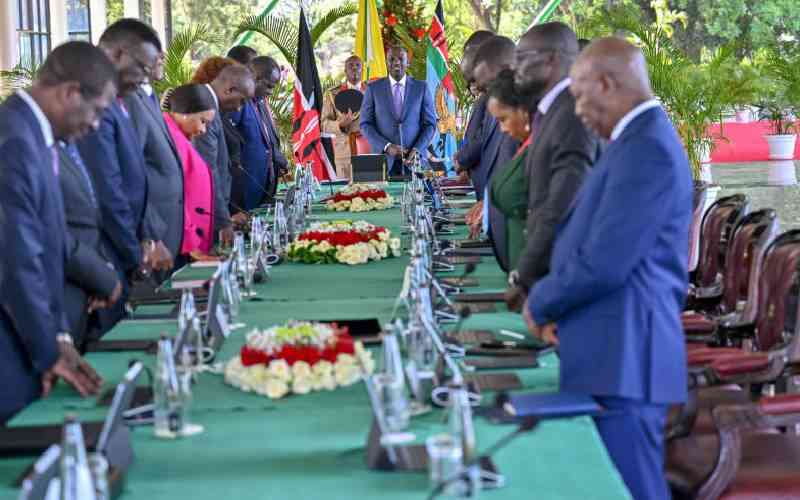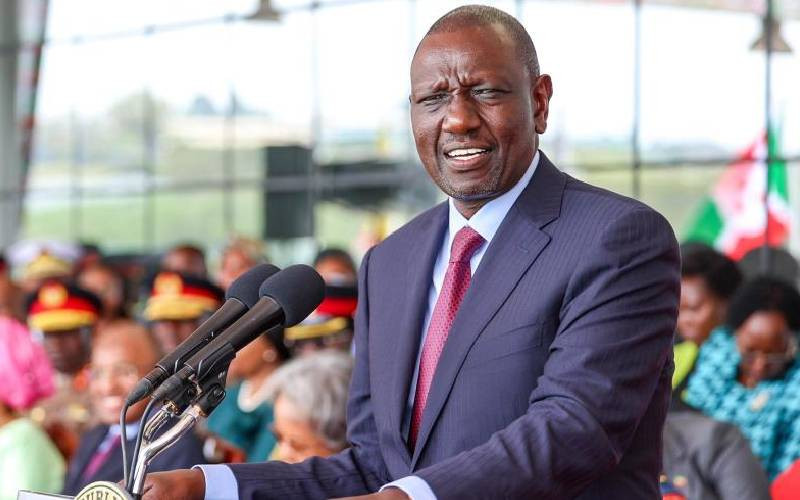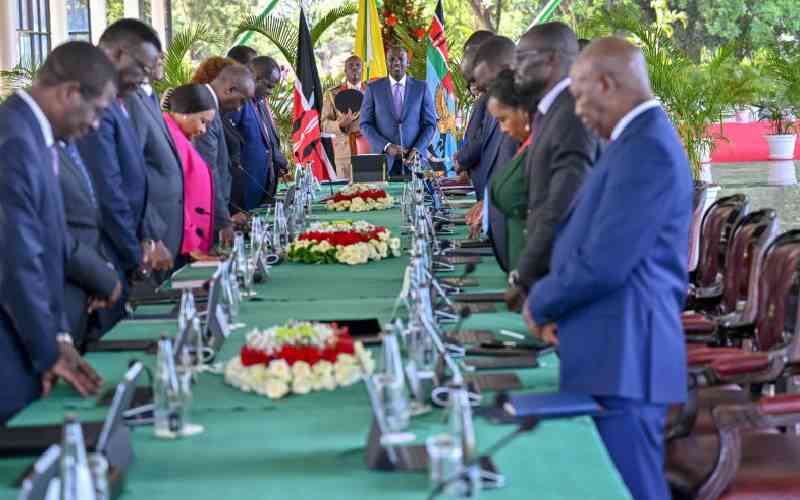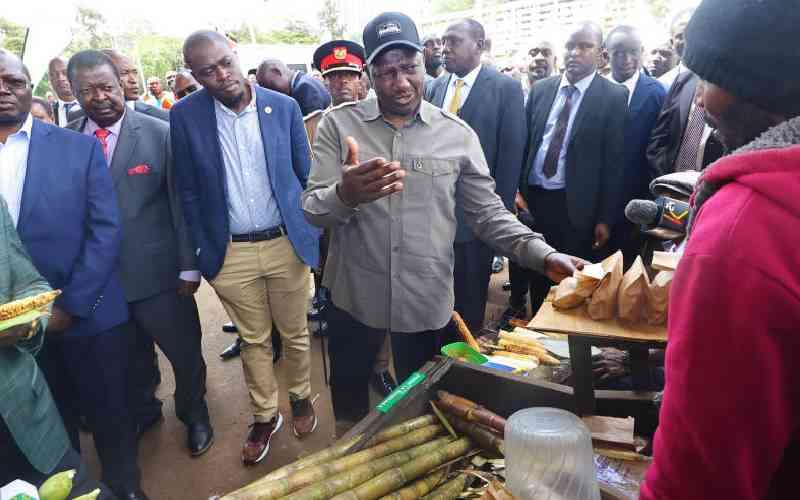
Africa, despite being a minor contributor to global carbon emissions, bears the brunt of climate change's devastating impacts. As we prepare for the African Climate Summit and Africa Climate Week, both set to take place in Nairobi at the start of September, it becomes increasingly clear that a united, multilateral response is crucial to confront the challenges ahead.
In a world that often fixates on emissions, Africa's climate paradox is glaring: it emits relatively little, yet it suffers disproportionately.
The United Nations Human Settlements Programme (UN-Habitat) recognizes the intricate link between urbanization and climate change, with cities at the forefront of this struggle, and the urban poor bearing the harshest consequences.
The rapid population growth in urban areas across Africa is turning these cities into hotspots of suffering, marked by flash floods, droughts, and heatwaves.
The recent devastation wrought by Cyclone Freddy in Malawi and Mozambique serves as a stark wake-up call - over 2 million people affected, 600 lives lost, and $140 million in damages, predominantly in urban areas.
Astonishingly, despite being home to over 600 million people, African cities receive the least attention in global climate discourse.
Recognizing the crucial role of cities
At COP27, a significant milestone was reached with the first-ever Ministerial meeting on Urbanization and Climate Change. It acknowledged the pivotal role of cities not only as contributors to emissions but also as part of the solution.
- Misdiagnosis, climate change to blame for pathogens' resistance to drugs
- We need to talk to our children about climate change
- Day out with the trash trackers of Mukuru slums
- Climate justice and conservation are undeniably interconnected
Keep Reading
Cities must adapt to the effects of climate change while simultaneously reducing their reliance on fossil fuels. Africa, with its unique challenges and opportunities, is poised to lead the way in this regard.
Furthermore, the UN-Habitat Assembly, held in June 2023 in Nairobi, passed key resolutions reaffirming UN-Habitat's role in sustainable urbanization and human settlements.
These resolutions underscore the critical linkages between urbanization and climate change and call for the use of technology to create smart cities that enhance living standards. They emphasize the importance of multilevel climate action and the central role of cities and local governments in implementing the Paris Agreement and National Determined Contributions (NDCs).
Strategic partnerships and multi-level climate action are critical to drive progress
The African Union's recognition of climate change as central to the continent's development is commendable. While African countries are beginning to incorporate urban climate resilience into their NDCs, it is crucial to translate these political commitments into tangible actions on the ground.
Partnerships for Progress
Strategic partnerships and multi-level climate action are indispensable for driving progress. Collaborative efforts, such as the partnership between UN-Habitat, UNDP, and the African Union Commission (AUC), exemplify the path to resilient urban development.
These partnerships pave the way for the effective implementation of the Africa Urban Resilience Programme (AURP). Kenya's leadership in the Building Climate Resilience for the Urban Poor (BCRUP) initiative, aimed at supporting the resilience of informal settlements housing more than 54% of Africa's urban population, is a noteworthy endeavour.
Challenges ahead
Amid Africa's urban climate paradox, a significant challenge remains: the lack of localized climate data. This scarcity hampers evidence-based planning, a cornerstone of effective climate action. Informed decisions rely on precise, context-specific data.
Overcoming this obstacle necessitates collaborative efforts to enhance data collection, monitoring, and modelling.
Building resilient cities
Creating resilient cities requires proactive, long-term planning that integrates climate priorities into the urban fabric. Climate justice, green energy, and innovative financing must be central to these plans.
However, alongside a shortage of skilled planners, financing gaps persist. Projections suggest that climate change-related loss and damage could cost Africa between $289.2 billion and $440.5 billion from 2022 to 2030.
Fulfilling NDCs requires an estimated $234-$250 billion annually until 2030. Inaction is not an option; addressing climate data gaps, empowering local communities, and exploring creative financing mechanisms are essential.
Attainable solutions
Moving forward, we must enhance coordination across all levels of government and support inclusive climate action that transforms cities and improves lives. The increased role of local government in climate action necessitates greater investments in building local capacities.
This is the only way to ensure the implementation of national strategies and solutions for adaptation and low-carbon development. By adopting integrated planning that leaves no one behind, embracing ecosystem-based approaches, and mobilizing climate finance, we can create thriving urban spaces and human settlements in Africa and beyond that safeguard our shared future.
UN-Habitat's commitment
As UN-Habitat, our commitment remains steadfast - we stand by African countries and cities in taking concrete climate action. We provide technical assistance to develop and implement local climate plans and resilience strategies.
We will continue to assist countries in accessing climate funds and promote multilevel inclusive climate governance. Our pledge is to scale up support to Least Developing Countries (LDCs) and Small Islands Developing States (SIDS).
The power of collaboration
Collaborative, data-driven strategies are attractive to investors and donors. Fostering innovation, embracing nature-based solutions, and integrating technology into climate action are keys to success.
By fostering partnerships, engaging civil society, and accessing climate funds, we can transform political commitments into tangible change.
A call to action
While we have currently mobilized $36 million, it's a mere drop in the ocean. What's needed is a seismic shift to bolster the resilience of cities in this era of multiple crises. The time has come for the principles of the Paris Agreement to resonate in Africa's cities, and for local governments to assume their rightful role in preparing for climate action.
The path ahead is a collective journey, and my hope for the African Climate Summit centres on collective progress. Africa's urban destiny hinges upon it.
The writer, Ms. Sharif, is UN Under-Secretary-General and the Executive Director of the United Nations Human Settlements Programme (UN-Habitat).
 The Standard Group Plc is a multi-media organization with investments in media platforms spanning newspaper print
operations, television, radio broadcasting, digital and online services. The Standard Group is recognized as a
leading multi-media house in Kenya with a key influence in matters of national and international interest.
The Standard Group Plc is a multi-media organization with investments in media platforms spanning newspaper print
operations, television, radio broadcasting, digital and online services. The Standard Group is recognized as a
leading multi-media house in Kenya with a key influence in matters of national and international interest.











